Things you can try to do to so your kid's not a dick about other people's weight
Don't raise a literal hole-digger
Last week I posted an issue about weight, and my friend/colleague/author Virginia Sole-Smith and I talked a little bit about what to say to your kids when they encounter fat-shaming on media we view with them. I asked her if I could have longer a conversation about it since she’s my witchy expert on the intersection of families, eating, health, and weight bias. Plus, she has her own newsletter, Burnt Toast, which you should subscribe to right now.


We are lucky in my family because my kids don’t have food allergies or aversions and don’t seem to obsess over food (right now, anyway). Even if we don’t talk about weight/bodies that much at our house what if anything can I do to encourage them not to engage in fatphobia?
I draw the parallel with the way we need to talk about racism. We know when white parents don't talk about racism, kids are more likely to grow up to be racist.
There's not much research right now about talking to kids about fatphobia but the consensus is that very similarly, we want to get ahead of this issue early. We want to talk about how all bodies are good bodies, they come in all sorts of shapes and sizes, that there's no bad way or wrong way to have a body. You start from positive: isn’t the world a beautiful place? At some point, you have to explain that not everyone in the world agrees with this. There are people who treat people with brown skin badly, and some folks treat people with bigger bodies badly.
You can call it fatphobia or fat bias, but it’s wrong, and it's our job to help people in larger bodies and be allies to them. It's important to talk about the privilege that that involves. We don’t pick our body sizes. We don’t really control our body sizes unless we're living a really restrictive life. Diet and exercise will only impact your body size so much. As a kid, you shouldn't be dieting or exercising to change your body.
When it comes to race, the tide has turned from when we were kids from“We don’t talk about our differences” to “We aren’t afraid to name our differences.” So what’s the right thing to say when a kid notices someone is fat in that semi-objective way kids sometimes do?
You can say something like, “Yeah, it’s really cool that bodies are all different sizes,” if you don’t think a kid is putting a negative spin on it. The worst thing you can say is “Don’t say ‘fat.’” The caveat I’ll add is that if the lady at the grocery store hears you, there's the added layer of “It’s not OK to talk about other people’s bodies without their permission.” You don't know how it will land with that lady. Because we have so much fatphobia in our culture, she may have her own journey. Don’t demonize the noticing of the difference. Explain, “Bodies are amazing: they come in different sizes, but we always ask permission before we talk about someone else’s body.” Then you're teaching consent. That’s a useful rule to have in place anyway. We also use the preferred terms other people use, like gender. Of course, your kid’s going to get it wrong, sometimes, though: that’s fine.
My older son has been talking a bit more about how he is thin, and he seems to be happy about how he looks, which I’m glad for although I’m a little worried he thinks it’s ideal to be thin. He asked me the other day, “Would you rather be fat or thin?” I told him that I have been both, but I think the world is easier for thin people. I’m not sure that was the right move—what comes next for this line of discussion?
You’ll never do it perfectly. You can follow up later. You might later say, “I was thinking about that question a little more. I just wanted to be clear, all bodies are good, it’s easier to be thin because that’s true. It's also easier to be white, and it’s easier to be male, but that doesn’t make it better.”
This just happened: an atrocious man fixed our well, and the first thing he said when he saw me was, “Hey, bun in the oven,” which is a great way to greet someone. I said, “Oh no, I’m just fat.” He said “Oh no, you’re pregnant,” then I said, “It's not appropriate for you to talk about my body.” He got defensive. I was upset. It was intrusive, this aggressive man saying these things. I said, “You need to stop talking about my body.’ My kids were there and heard the whole thing. I need to do some follow-up with my 7-year-old. I don't want her to think looking pregnant is bad or looking fat or something. At the time I said “Hey, this well guy was really weird, we’re having a stressful week because we have no water in the house, so I got upset. Because it’s not okay for a stranger to talk about my body, but not because there's anything wrong with being fat.” Afterward, I could come back to her and say, “This is what you heard, and I want to add some nuance to this.”
We don’t discuss diet culture much at my house. What should I tell my boys to prepare them about diet culture when they encounter it more in earnest?
Generally, my advice is don’t assume they’re not exposed. There are a lot of studies that show as early as between 3-5 years, kids begin to think that fat is bad. Between ages 8-15, 28% of kids will try a diet. I think it's better to assume that the ship has sailed on the bubble. Even if they’re not getting it from you, it's the teacher, friends, parents, grandparents making a comment. How do I get my parents to stop talking about their kids in front of the kids? You can't. But you can model effective boundary setting. You don't need to sit your kids down and have an official talk, where you say, “You’ve never experienced this where people starve themselves and feel bad.” You don’t need to give them the tough truth but look out for subtle ways. TV will give you great opportunities. There's so much fatphobia in kids’ media. You can talk about how fat characters are portrayed in books. Calling out these small examples is the most important thing. You want to make them aware that the world is not treating people in bigger bodies appropriately.
If you have someone in your life who does talk about their body in front of your kids, if you can, say to them, “I’d like to avoid these topics with my kids” or, if you think they’ll be receptive, after you hang out with that relative you can say, “I know it’s weird Grandpa’s as not eating bread right now. Bread it's a great food, you don’t have to worry about this.”
End credits
I hope you enjoyed this issue of Evil Witches, a newsletter for people who happen to be mothers. If you have any questions, feedback, ideas for guest posts, or suggested topics for the newsletter you can reply right to this email. You can follow us on Instagram here and talk to other witches on Twitter, too.
If you haven’t, please consider supporting this independent, nonsponsored work and joining the subscription level (less than a dollar a week!), which gives you extra context and access to fun/helpful/honest witchy discussion threads.
With that said E.W. is off for the rest of the week—it’s the last day of school today so here’s how the rest of my week is tentatively looking:

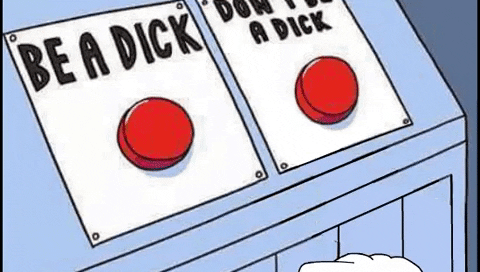


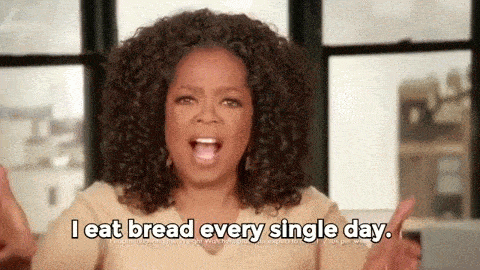
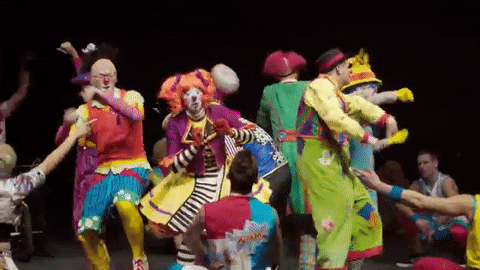

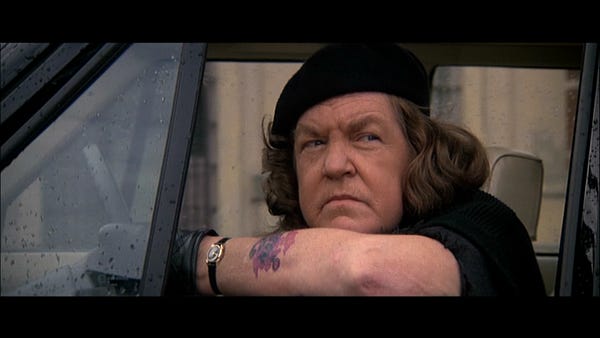
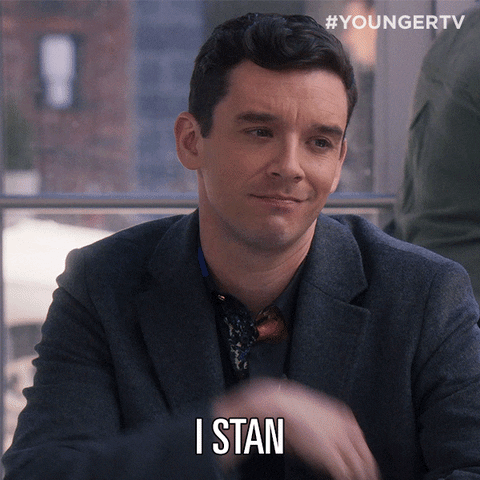
Fuck you, well guy!!! (Great chat, today’s EW)
This is a great edition of the newsletter